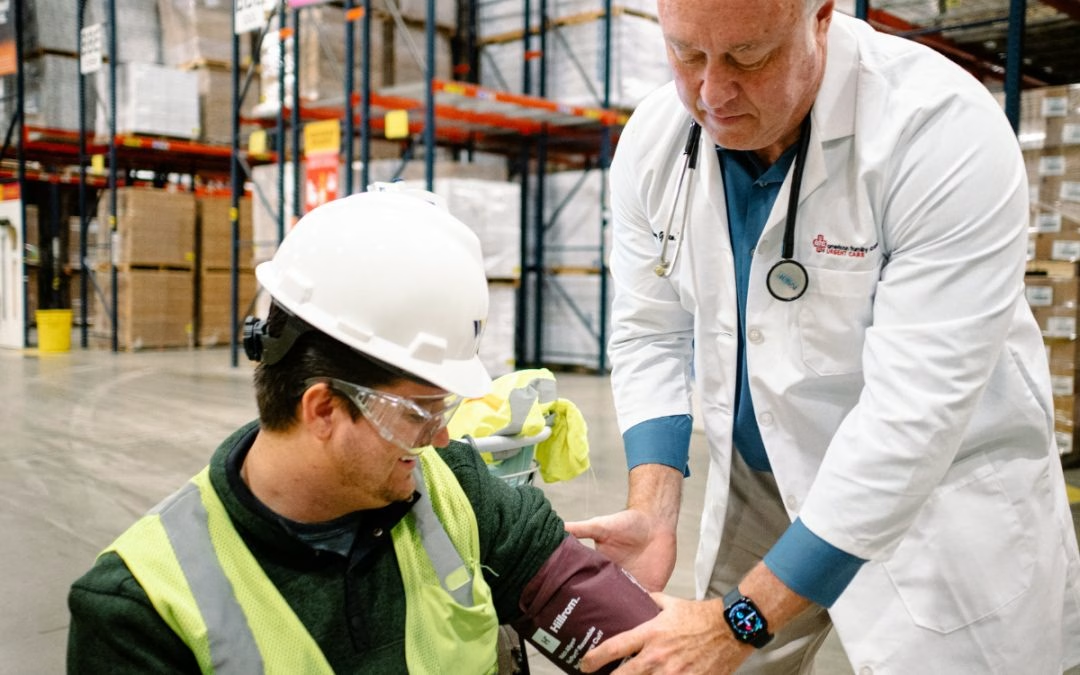
The effects of COVID-19 have affected us all in unique ways. We’ve learned just how quickly symptoms can develop after exposure, underscoring the need to stay informed about our health and the health of those around us. You can go to the park one day, visit Berewick Recreation Center another, visit family the next, and then get a call from family saying they’re sick and you might be too. While most know what to do next, that in-between phase—when you’re unsure if symptoms will show up—can often feel the most confusing and anxious.
If you believe you are experiencing COVID symptoms, visit AFC Urgent Care Gastoina for a rapid test.
When Do Symptoms Appear?
The incubation period for COVID-19, which is the time between exposure and when symptoms may appear, typically ranges from 2 to 14 days. On average, symptoms begin around 5 to 6 days after exposure. However, this can vary depending on the virus strain and your vaccination status.
Common Signs and Symptoms
COVID-19 symptoms vary significantly, from mild to severe, often beginning slowly before escalating in some cases. Below are some of the most frequently reported symptoms:
- Fever or chills
- Cough
- Shortness of breath or difficulty breathing
- Sore throat
- Congestion or runny nose
- New loss of taste or smell
- Fatigue
- Muscle or body aches
- Headache
- Nausea or vomiting
- Diarrhea
It’s important to remember that this list doesn’t cover all possible symptoms. As new variants of COVID-19 emerge, the symptoms may change, and your vaccination status can also influence how symptoms present.
COVID-19 in 2024
COVID-19 continues to pose challenges in 2024, with new variants emerging and the virus still spreading. It’s crucial to stay aware of symptoms and monitor your health, especially after potential exposure, regardless of vaccination status.
What Should I Do If I Think I Have COVID?
If you start to experience any symptoms, even mild ones, stay home and avoid contact with others, including those you live with who are not sick. Some symptoms might be mild at first, but they can progress to more severe illness, especially in individuals with underlying health conditions.
If you are at a higher risk for severe illness, it’s important to reach out for medical attention as soon as possible for testing and treatment. Timely intervention can help minimize the risk of serious complications.
When to Seek Medical Attention
Certain symptoms will warn you to find immediate medical attention. If you or someone you know experiences any of the following emergency warning signs for COVID-19, seek help right away:
- Trouble breathing
- Persistent pain or pressure in the chest
- New confusion
- Inability to wake or stay awake
- Pale, gray, or blue-colored skin, lips, or nail beds (depending on skin tone)
COVID-19 vs. Flu
While both COVID-19 and the flu are contagious respiratory illnesses, they originate from different viruses. COVID-19 is linked to the SARS-CoV-2 virus, whereas the flu comes from influenza viruses. The overlap in symptoms can make it difficult to differentiate between them based solely on personal feelings.
Fortunately, certain tests can differentiate between COVID-19 and the flu. Our team at Gastonia will be able to sit down with you to discuss your symptoms and find the best treatment for you, whether you are experiencing COVID-19 or the Flu.
Also, don’t forget that we provide flu shots at our urgent care for the upcoming season—winter will be here sooner than you think!
Visit Us Today
Being aware of the timeline for COVID-19 symptom onset can help you take the necessary precautions to protect both yourself and those around you. If you’re feeling ill, it’s better to play it safe by staying home and getting tested. If symptoms worsen, make sure to visit our clinic promptly.
If you are concerned about contracting COVID-19, visit AFC Urgent Care Gastonia for COVID-19 testing.


